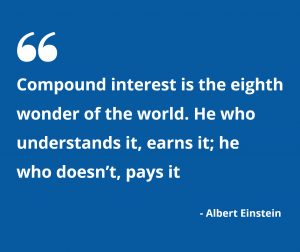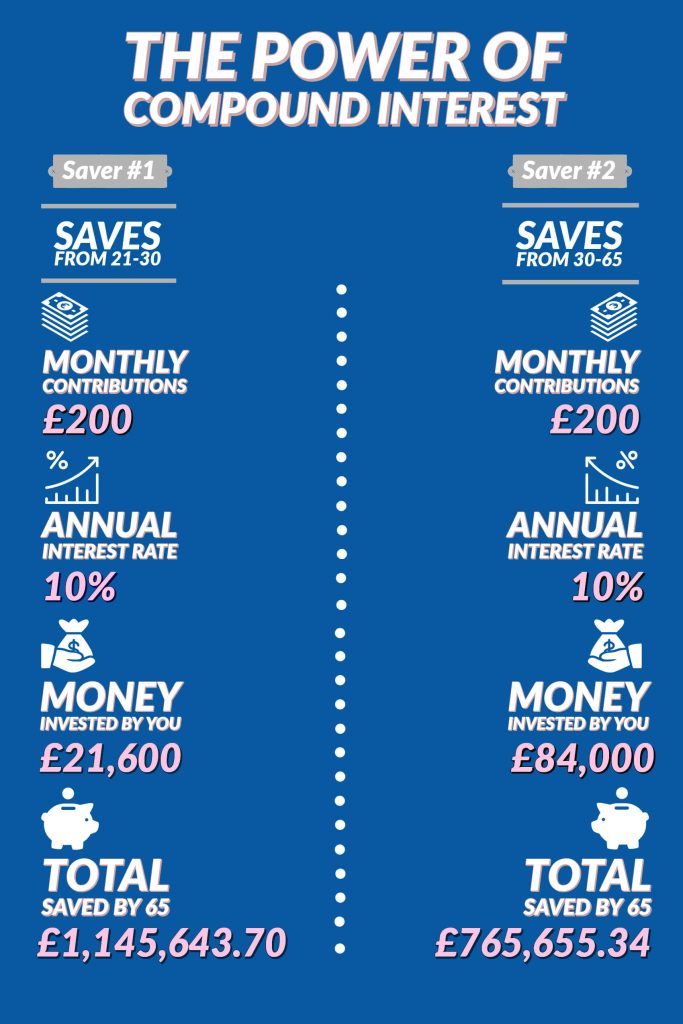
Can you save for retirement in just 10 years?
Posted on: 28th October 2019 in
Retirement Planning
What do Benjamin Franklin and Albert Einstein have in common? No, this isn’t the start of a bad joke. The answer is they both saw the value of compound interest. Einstein was so convinced of its value that he called compound interest the ‘eighth wonder of the world’. When it comes to improving our financial health through savings, we can learn a lot from both. 
Benjamin Franklin gave us a practical example of how compound interest can work for you. When he died in 1790, he set up trusts of $4,000 for each of his two favourite cities, Boston and Philadelphia. As per the wishes of his will, the trust was intended to exist for 200 years. By 1990, 200 years after the trust was set up, they had grown to a value of $7.25 million, for both cities. Not bad, considering the size of the investment. Both saw the value of compound interest, but can you use it to save enough for your retirement in 10 years? The short answer is yes, but there are some things you need to know.
What is compound interest?
When interest is calculated based on the starting (principal) amount, plus any interest that is applied, this is compound interest. Think about it as interest on interest. Let’s say the principal amount is £5,000, and the interest rate is 5% annually. After one year, that new amount would be £5,250. Compound interest takes into account this new principle figure. So, the following year, interest rates are applied to £5,250, which create a snowball effect. Savings and loans can have compound interest applied. Thanks to compound interest, your money keeps growing, even if you stop adding to it.
How to make the most of compound interest
The earlier you start saving, the better off you will be. While you won’t have 200 years to grow your money like Franklin, compound interest over 44 years can set you up for retirement. Depending on your situation, saving for ten years and harnessing the power of compound interest can build a sizeable pension pot. 
You will need to be aware of the compounded period to make the most of compound interest. What this means is, the frequency that compound interest is applied. Interest is applied yearly, quarterly, monthly, and in some cases daily. The more often compound interest is added, the better it is for savers. A frequent compounded period means interest is being applied to the principal amount more often. To get a better idea of your savings potential, check out our compound interest calculator.
Compound Interest Calculator
Compound interest is the paramount reason to start saving early. Making an early start on your savings is what makes it possible to prepare for retirement in ten years. Saving for just ten years is a hypothetical situation to emphasise the power of compound interest. You can save more each month as your salary increases, or you can reduce your regular savings amount. Compound interest might produce better returns the longer it’s left, but everyone can benefit from it. The bottom line is, the earlier you start saving, the better, but it’s never too late to start saving. Whether you’re in your 20s or your 50s, with the right strategy, you can build a pension pot and give yourself the retirement you want. If you would like to speak with one of our retirement planning experts, contact us using the form below.




















